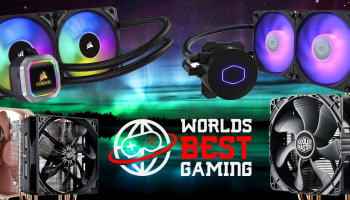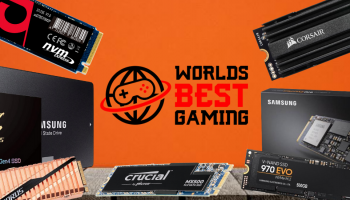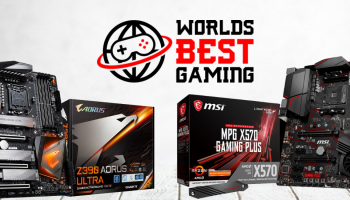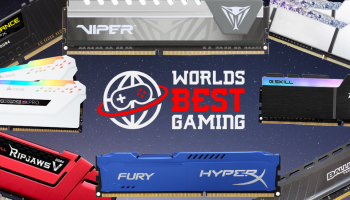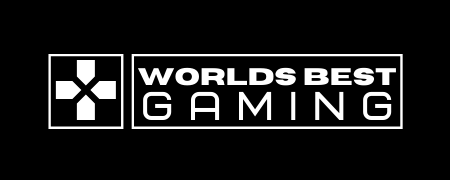Best HDD’s of 2021


If you want an epic gaming rig you’ll need to think about how often you want to fill it up with games, meme photos, cat videos, and whatever else tends to clutter a Hard Drive. Building a new desktop requires our good old friend, storage drives, and they are not equal. Storage space is not only an important thing to consider and there are actually a few misconceptions about it. If you are a gamer, we 100% recommend getting an SSD (We’ll explain why here as well) and even have a guide on that. SSD’s are amazing little machines but they haven’t completely replaced the HDD for a variety of reasons. In the end, you’ll want both! In this article we’ll cover the best HDD on the market and then dive into some technical information for those who don’t just want a product, they want to know why!
What is an HDD
Hard disk drives are mechanical devices that help us store data. Without getting into all the hard to understand technical details, it’s simply a storage device. Hard Disk Drives are cheap, mechanical, last a long time, and pretty easy to stack in a desktop PC. Because of this, it’s easy for almost everyone to have 2TB storage drives that they can load up. Storage is cheap today and doesn’t need to be hard to get. But there are a lot of confusing acronyms and storage formats so we’ll break down the most common for you in our technical guide.
Variation for days!
Buying a new HDD is more about making sure you get a fast, reliable model, and picking out the amount of space you need. For external HDD which deserves an entire individual guide, there are far more factors to consider (Such as how rugged it is!). If your Hard Drive is in a desktop though, speed and longevity are probably the only factors you need to care about. And that’s it. So we have a massive list of… three products!
BEST OVERALL DISK DRIVE – SEAGATE FIRECUDA 2TB
Seagate is one of the best manufacturers of hard drives and they tend to have a pretty good pedigree. The FireCuda breaks the unwritten code of throwing the word gaming into the title and claiming to be a gaming disk drive. Despite this grievance, it’s the one of the fastest and best disk drives for storage you’ll find. You don’t need to settle at 2TB as there are other models on the market. As a hybrid drive, it is basically a disk drive with a Solid-State Cache. It’s also huge compared to the lesser 2.5’’ drive so be aware that you’ll need to have room in your case and this probably would be terrible to put in a console. Albeit hilarious.
In technical terms an SSHD basically means pulls information that is needed into a cache that is way faster than a traditional cache. In practicality? It doesn’t translate to crazy reduced load times in The Witcher 3. The difference between an SSD and HDD is probably going to be 20 seconds, even as much as a minute. Most games won’t benefit from an SSHD nearly as much as an SSD and you’ll probably get something closer to a 3-second difference or so in load times (Although that isn’t always true, for instance, Kingdom Come Deliverance is way slower on an HDD and it’s a noticeable difference with Battlefield V). So why an SSHD? It’s cheap, it’s faster albeit marginally. And just a solid dependable product. They’re also not terribly expensive and we trust Seagate to make a phenomenal product. There is also a 5 year limited warranty which is nice as drive failure does happen. This is also pretty small and will fit in a PS4 or some laptops (Although you gotta be brave to attempt that as installing on some janky laptops isn’t so easy). They claim on the Seagate website that this is up-to 5 times faster and perhaps in certain bizarre situations but when it comes to gaming, you can expect pretty nominal HDD results. Just a little bit better.
back to menu ↑BEST BUDGET DISK DRIVE – TOSHIBA MAIN 4757
This bad boy is cheap, doesn’t look very presentable, and runs for years at 7200 RPM. There isn’t much special except that this is a good and hardworking drive (I have two) that does what it needs to do. I could go on, but that’d be kind of like fluffing this article for a word count. This an HDD and good for long-term storage. It is big so you probably don’t want to buy three of these and jam them into the same case.
back to menu ↑BEST BUDGET SSHD – SEAGATE FIRECUDA 1TB
This is almost the exact same HDD but half the price and half the size running a bit slower! Doesn’t sound like a winner right?
Basically, drives come in two sizes and two speeds which we explain in our technical section below. There are numerous options and they’re all pretty good. One note to mention. The newer FireCuda line has been rebranded compute so if you get that, it isn’t an outdated drive, it’s just a more modern refresh. This is essentially the smaller version of the FireCuda Gaming and one thing to note about 2.5’’ drives is that they generally run at 5400 RPM (Which is similar to laptop or console HDD speeds). The speed difference isn’t huge and the SSHD nature pulls this back up to be pretty fast. A mechanical drive just can’t compete while being so much smaller! This is though very affordable, fits in most case situations due to how tiny it is, and realistically using an HDD or SSHD and expecting SSD speeds is just depressing. These drives are moving to be the more dependable long-term storage solution. Since I work in Media, I often have two traditional SSHD or HDD and pull the games, videos, or whatnot onto my SSD as a workspace. Not everyone has those resources but ultimately you won’t feel a huge difference either way. It’s like upgrading your modem from dial-up to modern internet. If you used slow or fast dial-up it was still pathetic compared to the upgrade! This will do the job and you can save some cash and pour it into an SSD eventually or even go really cheap with the Toshiba so you can get something fancy.
That’s it! Curious why I don’t have 20 options? I’ll explain at the end!
Technical Section
TECHNICAL SECTION
Misconceptions
Have you ever heard someone exclaim that they erased a 200GB program so now they have so much memory that the computer should run faster? This unfortunately comes from how close our naming conventions are for different PC parts. Computers have RAM or Random Access Memory that is essential in creating speed and helping information flow, but it is an entirely different type of memory with a different purpose. People think that all memory types are the same and often confuse storage space with RAM. A full HDD USUALLY will run just as fast as a fresh one (It has to be REALLY full and minimize the cache to take a good performance hit). So the exceptions are how fragmented the data is and whether or not the cache is starting to fill up.
We wrote an awesome guide on RAM and everything you need to know if you want to dive deep into that subject.
SSHD vs HDD vs SSD?
Why are there so many letters?!?
This is actually not the most complex subject.
HDD are mechanical, like a car, or bike. They have moving parts and that causes a lot of wear and tear and risk overtime.
SSD are electronic, basically a big circuit board or USB Drive. Nothing moves and they use electricity to store information making them volatile to electrical discharge but extremely fast.
Your computer wants as MUCH information as possible as quickly as possible allowing it to build elaborate worlds like those in the Witcher 3. An SSD pulls up that information blazing fast and is a fairly superior storage device. But they are EXPENSIVE! So HDD are the perfect solution for that slower information we don’t need all the time. Family photos, documents, games that you want to play but have delayed playing for the last five years (We all have a Steam shame list).
HDD’s spin a disk at insanely fast speeds while a laser device reads information off of this spinning disk. This creates heat, wear and tear, and has some unique problems. For instance, defragging, a term most of us have heard and don’t understand, is simply defragmenting an HDD. When data is stored on a spinning disk, it can get stored all over the physical space and even those the distance is tiny, the physical distance between files can decrease efficiency. Defragging takes items that are most commonly opened or work with each other and organizes them to be closer.
Believe it or not, HDD do have many advantages over an SSD just as SSD have an advantage over them. Primarily price and the amount you can store is the common reason we still haven’t gotten rid of our ol timey HDD’s. It’s cheap to fit 4 TB or even 6 TB of information on one compared to an SSD. Be forewarned though that the larger the drive size, the more likely it is to have failure and other problems. Often it’ll need an additional power supply if it gets big enough too.
The other reasons HDD are still in use are unique as well. SSD are susceptible to failure with electricity and some other problems. SSD have a lifespan that is difficult to calculate and often speculated to be less than that of an HDD. This is most likely a myth as normal use of an SSD can’t wreck it that much but it is finite where an HDD is finite but like mechanical items, may run really long like a 1965 Mustang or die pretty quickly like a Prius Battery.
WHAT TO LOOK FOR IN A GOOD HARD DRIVE
Brand
Brand Name isn’t always best but when dealing with a storage device, the consequences can be pretty extreme if you lose sensitive or important data. Some off brand HDD enter the market occasionally, and it’s just best to avoid them. A broken mouse is an inconvenience, a broken HDD with all your tax documents is a real problem. Stick with Segate, Western Digital, Toshiba. They’re affordable and do a great job.
Failure Rate
The failure rate is measured as the AFR or Annual Failure Rate. It’s scary, the average rate is probably around 1.25%. And it accumulates. I.E. 2.5% over two years, and so forth. The good news is that the failure rate is assuming that the drive is on for the full year, every hour. The bad news Even good manufacturers like Seagate produce the odd bad egg like the ST4000DX000. According to Backblaze, this HDD has over a 13% fail rate per year! That’s a terrifying amount of failure but realistically the sample size might be too small. Online you can often find HDD failure rates and the stats of the worst drives tend to have a 3-4% fail rate. Regardless, it’s important to know that not all HDD design is the same and you could buy a drive that dies young. You could just be unlucky too. A good HDD will usually give you a limited warranty so that means don’t poor water on it or shake it and register it when you get a chance.
New vs. Used
HDD actually have a significant chance to fail the older they get. Never buy a used drive. It’s just risky and even if it works (As users can lock them) you might get a drive with anything from spyware to personal files from someone else. Just don’t do it.
HDD Drive Size
Hard Drives come in two sizes, 3.5’’ and 2.5’’. Truth be told the size isn’t really a small difference. The 2.5’’ HDD options fit in laptops, consoles, and are pretty small. The 3.5’’ HDD takes up the space of perhaps a CD-Drive and have some minor advantages. Today a 2.5’’ HDD is my favorite solution because I use an SSD so my long-term storage doesn’t need to be super fast. Some prefer the 3.5’’ as it’s more common to see higher RPM’s and get a pretty decent amount of load speed difference. An SSD just annihilates the difference between the two though. If you can ONLY have one HDD though, a 3.5’’ is usually the best option.
HDD RPMS
This is the speed at which a drive spins. It does affect things and primarily the fastest options will be 7200 RPM. The smaller drives usually spin at 5400 RPM. There are crazier weird drives that spin at 10,000 and 15,000 but that makes me uncomfortable. If it worked and was a good solution it’d be common right?
Storage Size
HDD’s come in sizes from 1TB to 12TB or 14TB. But the larger ones get expensive, slower, and are often more prone to failure. Additionally they may require an outside power supply. Realistically, if you aren’t using your PC for large amounts of Video Editing or storage, a 2TB HDD will probably never fill up with today’s game libraries if you put games your actually playing on it. That’s hard to gauge though as a new AAA Rockstar game may be massive while a new AAA Obsidian game may be 3-4GB.
How much space do I need?
The ideal starting setup is a large SSD (500GB) with a 1TB Long-Term Storage Drive. Windows can clock in at around 80GB so even a large 256GB storage drive will fill up with two large AAA games. SSD run so much faster with load times so your prime playing games should be there. HDD are slower but for older or less intensive games that isn’t much of an issue. Regardless, 1 TB can fill up very quickly so pushing for 1.5TB to 2TB means that you can keep those huge AAA games on the system, the OS, pictures and video, and live worry-free. If you create content or stream, cloud solutions or huge HDD are possible options but it gets pricey to keep all your content.
How many HDD’s can I have?
There is a limit that usually depends on a variety of factors like the mobo, slots inside your case, and even OS setups. In general, it is not very common to put more than 4 drives into a machine but some configurations can hold up to 24.
What if my HDD fails?
Data Recovery is not impossible but it is often very pricey and the elaborate process isn’t even guaranteed. The best bet is to practice good storage habits like keeping a backup of sensitive and valuable information somewhere apart from your main residence or work (In case of fire or disaster). That being said, there are some free and expensive online data recovery tools and even old IT strategies. Years ago technicians would put an HDD in the freezer in a waterproof bag. The cold would free up the components by condensing the metal. This method doesn’t really work today as HDD design has changed but it’s another example of just how mechanical Hard Disk Drives are.
The best solution for a failing HDD is to already have a backup of what matters. There are plenty of cloud services such as OneDrive that can accomplish this. Good backups are just a lifesaver. Technically people like the government or those who hate money and want to spend it can get loads of data from a broken drive, but it’s usually not worth it for the everyman.
What is a RAID setup?
RAID or Redundant Array of Inexpensive Disks (A somewhat insulting sounding name) is a unique way to setup your HDD that allows for data redundancy. It’s not complex but it is a bit technical to go through all the configurations. Some mirror data meaning two HDD basically copy each other in case of a crash. Others do way different things for the ultimate experience in reliability. What you need to know is that a RAID setup is a way to make sure your data is safe in the case of HDD failure. With the internet, cloud solutions, and most people having very little reason to go to extreme lengths to backup stuff, RAID isn’t that common. At a business though, especially one that keeps a server disconnected from the internet, it is invaluable and can save a system during cataclysmic failures.
Should… should I shake it?
No. It’s a spinning disk. Imagine you were playing a vinyl record on a record player and wanted to put a ton of pressure one side. It isn’t pretty. Today’s drives have way more stability than drives of yesterday but it’s wise not to pick up your desktop and move it around without turning everything off. That’s just wise in general. Many a desktop has been ruined because it pulled the monitor off the desk by not being disconnected and pulled too far.
Why the heck can I use HDD space for Virtual RAM?
RAM is blazing fast. It’s lightspeed compared to the tortoise of an HDD. Yet not having enough can be very detrimental to running well. Virtual RAM uses a portion of the HDD as RAM in order to keep information readily available and increase the speed of things. The downside is that the HDD is pretty slow so it’s sort of a bandaid on the actual problem. Additionally, this VRAM can’t be used for storage space. Finally, it requires lots of reading and writing so DO NOT use it on an SSD as that can shorten the lifespan of the precious SSD baby. In general, Windows 10 does a great job of just naturally setting the VRAM amount and if you are lacking RAM it’s better to perhaps purchase more than try and squeeze performance out of the ol’ HDD.
And finally…
Why don’t you have 25 other drives like the other amazing best HDD of 2020 websites?!?!? The TOSHIBA seems like a lame cop-out!
Because HDD are fundamentally similar and cheap. SSD? There’s a bit more variation, but today’s HDD is so well-designed, tested, and built that there isn’t a lot of innovation. SSD’s just annihilate the HDD and are universally better except for a few issues (Like electrical spikes!) but they’re hecka expensive. Most HDD are going to be really great, standard, affordable HDD. It doesn’t make sense to bloat this article with a bunch of choices. We think this was an awesome pick and if you need more options, leave us a comment below and we can look into other options, if the WBG community is genuinely interested in content, that’s the content we consider making. We don’t bloat articles to sell gear though.
Most websites that give you more than 3-5 products are entering into dangerous territory as they can’t possibly review or do good research on 37 RAM sticks. If a product doesn’t stand out or a technology isn’t special, we don’t need to confuse you with too many options. We aren’t like other sites jamming products down your throat so that you’ll buy them, in fact, if you want a raw honest take on WBG and our philosophy, click here!
Thanks for joining us!
Whether it’s an HDD or the legendary SSD of today, storage space is an invaluable tool for the PC user. We hope you found a drive that works for your needs. Nothing is worse than constantly rearranging all of your files just to do things on your PC. Worse yet it is absolutely frustrating to delete several programs to only find out that you still don’t have room! At World’s Best Gaming, we want you to find the gear that you become a raving fan of. As ordinary as storage solutions are, they are important. If you still have questions, I suggest checking out our guide on RAM and SSD as they contain more explanations about the whole eco-system of storage space in desktop computers. As always, keep coming back to WBG for guides and explainers on today’s best PC Gear.
